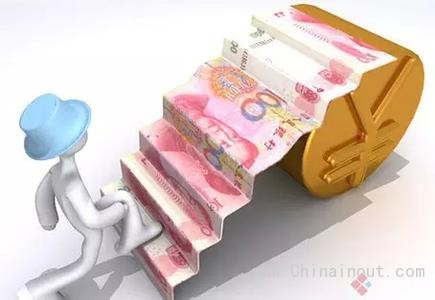
拉蒂首先明確表示,自己對于中國經(jīng)濟的增長持高度樂觀態(tài)度,并對此具有堅定的信心,。拉蒂說,,在中國過去的改革歷程中,市場在資源配置中的作用不斷提升,。其中最值得關(guān)注的現(xiàn)象就是私營企業(yè)的快速發(fā)展和崛起,。從改革開放初期到現(xiàn)在,私營企業(yè)部門不僅經(jīng)歷了從無到有的發(fā)展,,更是在體量和質(zhì)量上快速崛起,。當(dāng)前,私營企業(yè)已經(jīng)成為中國經(jīng)濟增長,、就業(yè)提升和投資增量增加的主要來源,。他認(rèn)為這是中國經(jīng)濟成功不可或缺的因素。盡管當(dāng)前中國經(jīng)濟開始進入結(jié)構(gòu)調(diào)整時期,,但是私營企業(yè)的發(fā)展趨勢并沒有發(fā)生變化,,反而得到了一定程度的增強。這將為中國未來經(jīng)濟增長提供動力和支持,。
就未來中國私營經(jīng)濟的發(fā)展,,拉蒂認(rèn)為當(dāng)前中國政府的經(jīng)濟改革為其提供了巨大的空間和激勵。首先,,中國政府進一步放寬了私營企業(yè)建立的門檻,。拉蒂認(rèn)為,中國政府已經(jīng)簡化了在中國開設(shè)公司的行政程序,,同時取消了公司最低注冊資本限制,。中國政府在減少行政審批和鼓勵私營企業(yè)發(fā)展方面作了大量的政策調(diào)整和改革,這為私營經(jīng)濟的進一步快速發(fā)展提供了寬松的政策環(huán)境,。受此影響,,在過去兩年中,新注冊的私營企業(yè)開始在中國大量出現(xiàn),。
與此同時,,隨著中國經(jīng)濟體制改革在“發(fā)展混合所有制經(jīng)濟”上發(fā)力,私營企業(yè)的發(fā)展空間也將得到進一步拓展,。拉蒂認(rèn)為,,當(dāng)前中國國有企業(yè)在能源、金融和電信等部門占據(jù)了重要的地位,,但是這一形勢正在發(fā)生有利于私營企業(yè)的變化,。目前,越來越多的產(chǎn)業(yè)部門開始向私營部門開放,。拉蒂也在記者采訪前的講座中特別強調(diào)中國私營企業(yè)巨大的發(fā)展空間,。未來私營企業(yè)的快速發(fā)展將進一步有效提升經(jīng)濟要素的配置效率,、資本回報率和國企效率。這也就意味著未來中國經(jīng)濟的總體勞動生產(chǎn)率和產(chǎn)出總量將會明顯提升,。
拉蒂強調(diào),,在過去30多年的改革進程中,中國政府不斷提升市場在資源配置中的作用,,當(dāng)前中國仍在繼續(xù)此前的改革進程,。在私營企業(yè)資本回報率和生產(chǎn)效率明顯提升的背景下,改革為私營部門的發(fā)展提供了動力和空間,。因此,,中國有能力維持勞動生產(chǎn)率和各經(jīng)濟部門效率的提升勢頭,中國不僅不會陷入所謂的“中等收入陷阱”,,反而會在未來新一輪中高速增長之后進入高收入國家行列,。(中國進出口網(wǎng))
"In the next five to ten years, the Chinese economy will have sufficient power to maintain rapid growth." Nicholas Lardy, a Senior Fellow from Peterson Institute for International Economics, recently told the "Economic Daily" reporter when participating in the British Royal Institute of International conference.
First Lardy made clear that he hold a highly optimistic attitude on China's economic growth. Lardy said that in China’s former reform process, market plays a more important role in the allocating resources. One of the most noteworthy phenomenon is the rapid development of the private sector. From the beginning of reform and open, the private sector developed from scratch, and rapidly increase in terms of volume and quality. Currently, the private sector has become the main source of China's economic growth, employment and investment increase. He believes this is an indispensable factor in China's economic success. Although the current Chinese economy entered a period of structural adjustment, but the development trend of the private sector has not changed, instead, its development has been enhanced to some degree. This will provide the impetus and support for China's future economic growth.
On the future development of China's private economy, Lardy believed that the current government's economic reform in China provided a huge space and incentives. First, the Chinese government further lowered the threshold of private enterprise establishment. Lardy believed that the Chinese government has not only simplified the administrative procedures to create a company in China, but canceled the limitation of a company's minimum registered capital. The Chinese government made a lot of policy adjustments and reforms to reduce administrative examination and approval, and encourage private sector development, which provided a favorable policy environment for the further rapid development of the private economy. Affected by this, in the past two years, a large number of newly registered private enterprises began to emerge in China.
Meanwhile, as China has made efforts to "Develop Mixed Ownership Economy", private sector development space will also be further expanded. Lardy believed that the current Chinese state-owned enterprises occupy important position in the energy, financial and telecommunications sectors, but this is changing and the change is favorable to the private sector. At present, more and more industrial sectors began to open to the private sector. Lardy also told the reporter in an interview that Chinese Private Enterprises had huge space for development. The rapid development of the private sector in the future will further enhance allocative efficiency of the economic factors, the return on capital and the efficiency of state-owned enterprises. This means that the total output of China's economy and overall labor productivity will be significantly enhanced in the future.
Lardy stressed that in the reform process over the past 30 years, the Chinese government continued to enhance the role of market in resource allocation, China's still in the reform process currently. under the circumstances that the private sector’s ROI and production efficiency has been improved significantly, the reform provides power and space for the development of the private sector. Therefore, China has the ability to maintain labor productivity and efficiency of all economic sectors, China won’t fall into the so-called "middle income trap", but will enter the ranks of high-income countries, after a new round of rapid growth in the future.











